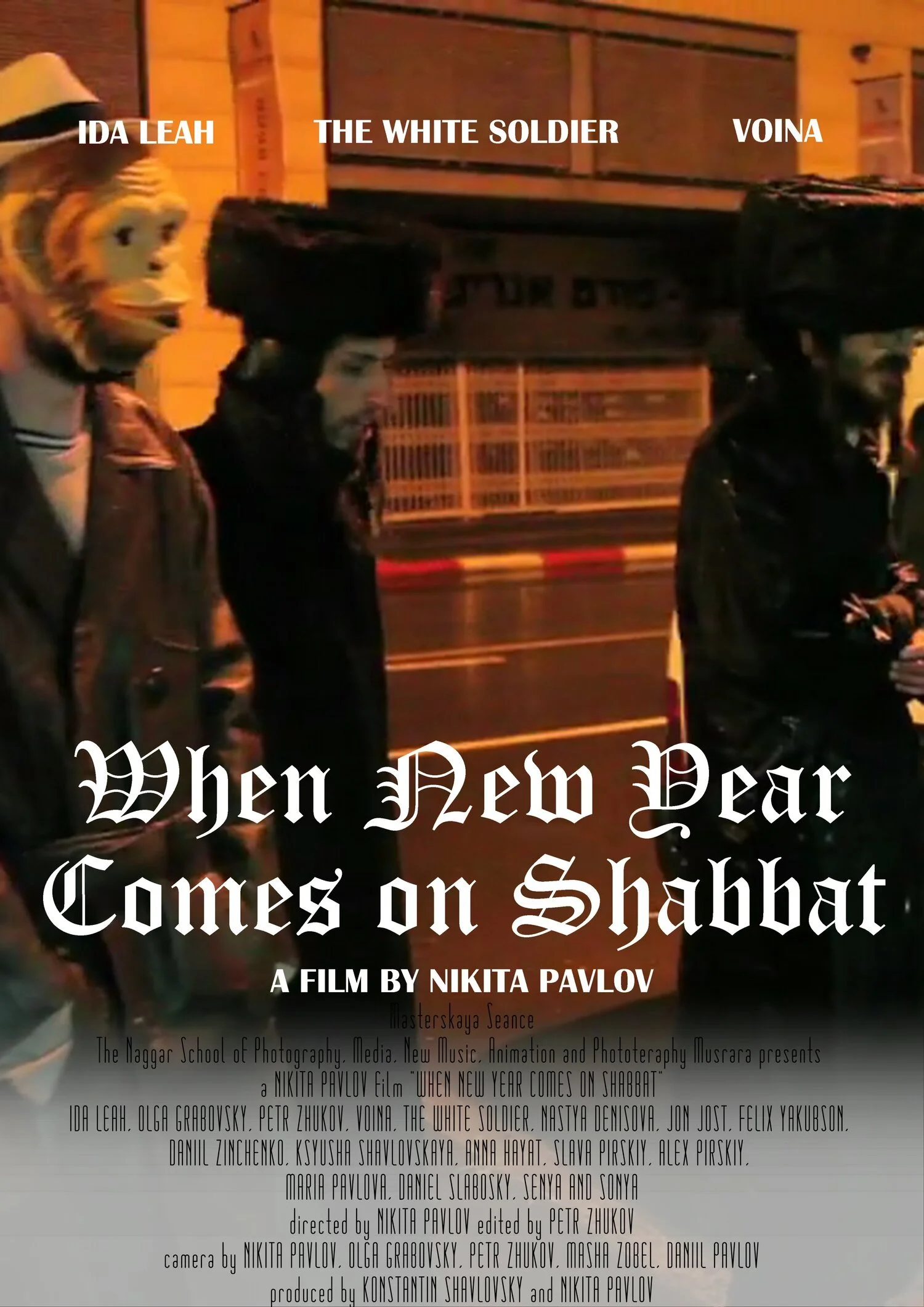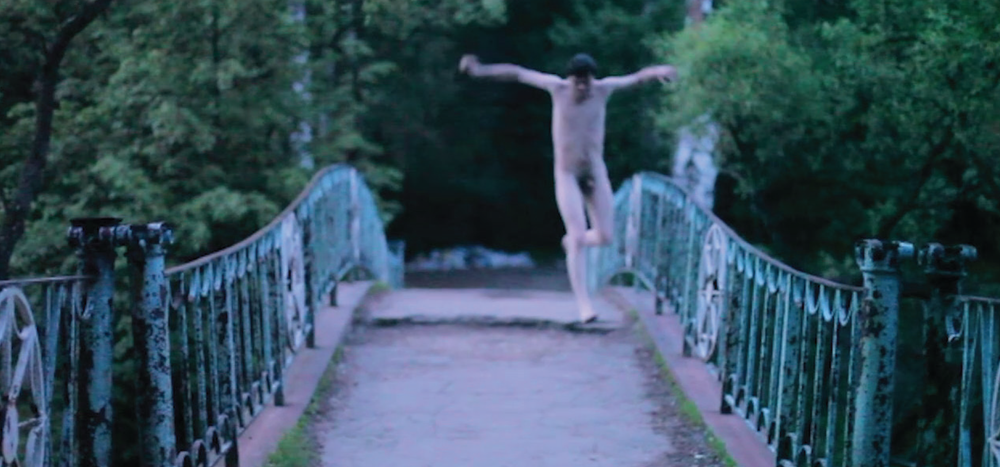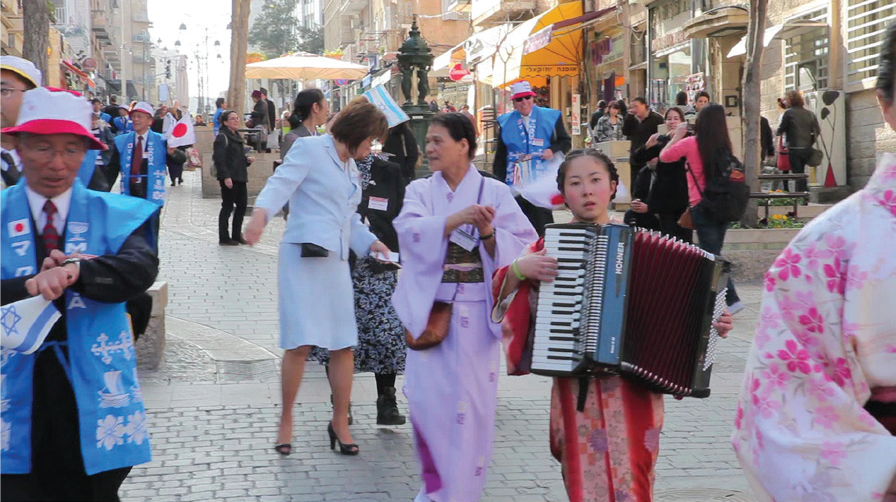When New Year Comes on Shabbat
A film by Nikita Pavlov
Premiered at the Ji.hlava International Documentary Film Festival
A cinematic collage about people caught between two worlds. An empathetic look at a physical journey and the melodramas of a journey that is spiritual.
When New Year comes on Shabbat
Documentary diary, 83 min, 2012
Director, Writer, Cinematographer – Nikita Pavlov
Editors – Petr Laden, Viktoriya Chupakhina
Producers - Nikita Pavlov, Masterskaya Seance
Premiered at the Ji.hlava International Documentary Film Festival and ArtDocFest
It’s a self-portrait diary movie about a man, who was locked between two countries. He leaved Russia for good and moved to Israel. Soon he found himself in a complex feeling, where he couldn’t name himself anymore Russian, because he’s already disconnected with almost everything what is going on in Russia, including politics, arts, and even his best friends. But at the same time he wouldn’t become real Israeli, because he’s emigrated at the age when full integration is impossible, and he’ll be forever immigrant. But with that experience of living in another country, he can’t look at his first motherland the same. So he started to film that trips to Russia and back to Israel, his friends in both countries, he interviewed filmmakers and was shooting just everyday life to compare absurd that is going on on different levels in both countries. In the movie his friend Yuda Braun, who is performing his project The White Soldier in Jerusalem, connected with the art group Voina in Russia, also doing political art.
Nikita Pavlov emigrated from Russia to Israel because he always wanted to experience life in another country. Street protests, political activism, and his daughter’s first steps are captured without any chronological context, separated only by Pavlov’s thoughts and ideas. A cinematic diary that attempts to piece together a hypothetical picture of the filmmaker’s future.
Pavlov has created a film that touches the heart and after watching it, one gets feeling of meeting with a talented author.
He documents his small family and his friends who dwell within Russian culture, and who are in a place in-between, when one can imagine that the aim is to be in both, to dive into Israeli culture and to stay in Russian one.
Skype conversations, bus travel, toddler dancing, and walking on the street - it all falls down to the mixture of noises, shapes, and atmosphere, which is a mixed feeling of closeness and distance.
Smadar Sheffi, Haaretz






